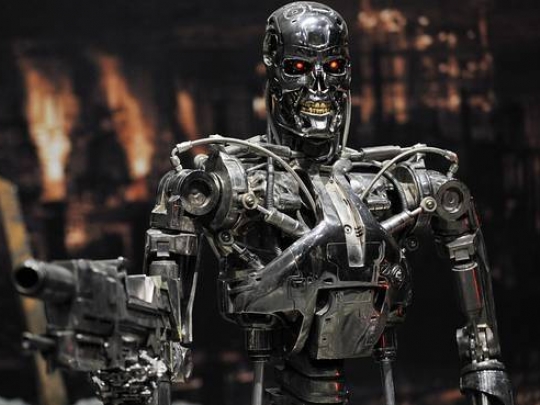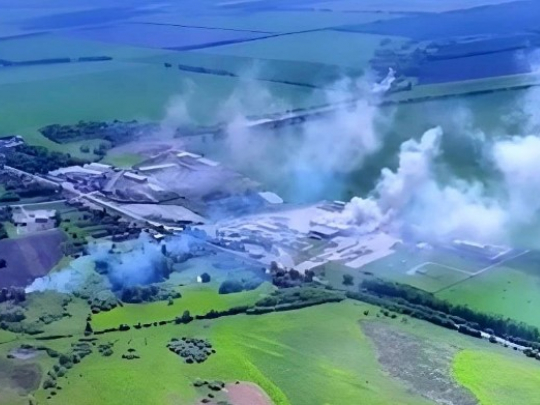The Future of War Looks Like Hollywood: “Terminator-Like Machines to Fight in Battlefields”

For those who always saw James Cameron’s blockbuster Terminator 2 as somehow eerily inevitable, recent trends in the development of warfare are proving them correct.
How will the nature of warfare change with the advent of autonomous robots that can make their own decisions to kill? In short, it could change everything, though it is unclear if it will lead to a final stand by a human army against the rise of AI.
Think tanks that advise military planning and policies are now warning that the dawn of autonomous, killer robots – in real life – is upon us, and could be wielded by the enemy to create an unstoppable force.
As RT reports:
The future of war will involve autonomous robots instead of humans, according to Air Force General and Vice Chair of the Joint of Chiefs of Staff Paul Selva, who warned enemies could build “Terminator”-like machines to fight in battlefields.
Speaking at the think-tank Center for Strategic and International Studies (CSIS) in Washington, Selva said the technology could be developed in 10 years – and that the world’s biggest military should punish anyone who pursues such weapons.
“This is about an entirely robotic system, completely autonomous, [that is] not dependent on the human decision,” Selva said. “We’re told by the technologists that we’re a decade or so away from that capability.”
“I’m talking about a wholly-robotic system that decides whether or not, at the point of decision, it’s going to do lethal ops.”
Robots are being used now by police (as in Dallas) and the military to enter dangerous areas, carry equipment and weaponry and other tasks, and will become better, stronger, faster and smarter with each passing year.
The usefulness and potential dangers of technology are saturating the operations of the U.S. military and other world powers as they plan for, or engage in war.
It is an unavoidable issue, and one that will have to be addressed and decided upon very soon.
But who will make those decisions, and what if they ignore the risks of Terminators taking out people?
Scary stuff. How the Pentagon want to make Terminator for real: http://t.co/XDm0AAwpEU via @motherboard
— Sadek Hamid (@SadekHamid) November 24, 2014
The Pentagon is trying to reassure the public that it will always keep human operators in the loop, while dealing with its own concerns that a China or another foreign power will take things further than the U.S. has dared to go.
This, of course, is the feedback notion that justifies such high levels of military spending, and the pursuit of such dangerous technologies.
As Motherboard reported back in 2014:
Pentagon officials are worried that the US military is losing its edge compared to competitors like China, and are willing to explore almost anything to stay on top—including creating watered-down versions of the Terminator.
Due to technological revolutions outside its control, the Department of Defense (DoD) anticipates the dawn of a bold new era of automated war within just 15 years. By then, they believe, wars could be fought entirely using intelligent robotic systems armed with advanced weapons.
Some of the dark implications for the future of technology, war and social control are outlined in a DoD sponsored paper titled: “Policy Challenges of Accelerating Technological Change: Security Policy and Strategy Implications of Parallel Scientific Revolutions”:
The 72-page d ocument throws detailed light on the far-reaching implications of the Pentagon’s plan to monopolize imminent “transformational advances” in biotechnology, robotics and artificial intelligence, information technology, nanotechnology, and energy.
Worse, the sophisticated levels of communications, data monitoring and cloud storage mean that Skynet may also literally become a reality, and is something that both China and the United States have been pursuing.
Predator drones have already changed the face of war, with their controversial use to target radical extremists in various war torn countries in the Middle East and Africa. These systems are already capable of autonomous life-or-death decision making, and their use may become acceptable.
The future might be unrecognizable, and the battlefield may soon become a place where humans don’t stand a chance.
- Source : Mac Slavo















